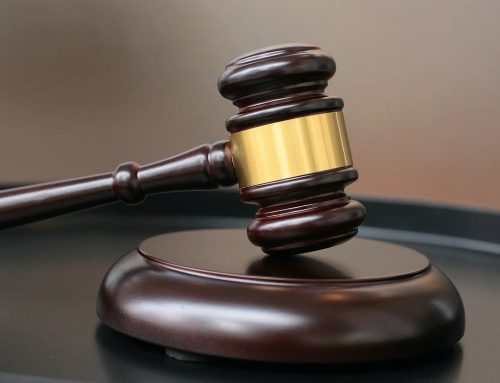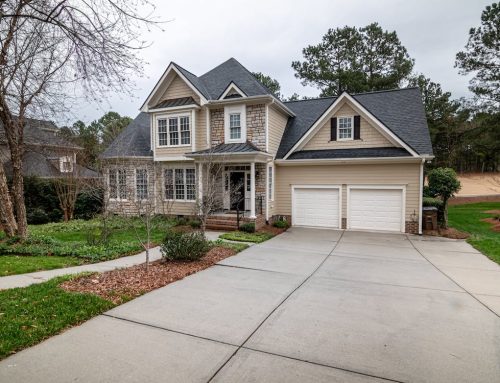
Sarah is a young professional attending a housewarming party at a friend’s rented apartment. It’s winter, but she decides to go outside on the balcony to make a phone call anyway. As she steps out onto the balcony, her foot slips on a patch of ice. She loses her balance and falls, hitting her head on the balcony’s railing.
Falls like these, especially on rented properties, bring a myriad of questions about insurance coverage to the forefront. Who is responsible? Does renters insurance cover slip-and-fall accidents? At Wynperle Law, these are questions we are asked often, so in this article we cover everything you need to know about falls on rented properties.
Defining Slip-and-Fall Accidents
Legally, a slip-and-fall accident refers to incidents where an individual sustains injuries due to a slip, trip, or fall on someone else’s property. The legal liability in these cases hinges on proving negligence.
On rented properties, determining liability can be complex, as it involves assessing whether the renter or landlord failed to maintain a safe environment. This determination is the key to establishing who is responsible for compensating the victim.
In instances where negligence is established, the injured party has the right to seek compensation. This compensation can cover medical costs, pain and suffering, income loss and other damages. The process typically involves filing a claim against the responsible party’s insurance policy, or pursuing legal action if necessary. The ability to secure fair compensation hinges on the strength of the evidence demonstrating negligence and the extent of the incurred damages.
Renters Insurance and Personal Injury Cases
Renters insurance policies are designed to offer financial protection to tenants. A standard policy typically includes personal liability coverage, which may cover legal fees and medical bills arising from third-party injuries, such as slip-and-fall accidents within the rental unit. However, not all renters insurance policies automatically include personal injury coverage.
If a tenant’s policy lacks personal injury coverage and an accident occurs, several scenarios may unfold:
- Increased Legal Vulnerability: Without personal injury coverage, the tenant could be more vulnerable to legal actions. If the injured party decides to sue for damages, the tenant might have to bear the legal costs and potential compensation out of pocket.
- Need for Additional Coverage: Tenants without personal injury coverage in their renters insurance policy might need to purchase additional liability insurance. This would provide an extra layer of protection against possible financial losses due to accidents within their rental unit.
- Dependency on Health Insurance: In the absence of personal injury coverage in the renters policy, the injured party may have to rely on their health insurance to cover medical expenses. However, this doesn’t alleviate the tenant’s liability for the accident.
- Potential Disputes and Litigation: Situations may arise where disputes over liability and compensation lead to litigation. Without personal injury coverage, such legal battles can become complex and costly for all parties involved.
Recourse for Victims of Slip-and-Fall Accidents
Victims of slip-and-fall accidents on rented properties have several options, even when the renter possesses renters insurance. Medical expenses may be covered under the renter’s policy, but there are often limits to this coverage.
If the renter is found legally responsible, the victim can pursue compensation through the renter’s insurance company. However, if the coverage is inadequate or the renter disputes their liability, litigation would be the next avenue for the victim to seek fair compensation.
The Role of a Personal Injury Lawyer in Slip-and-Fall Cases

In slip-and-fall cases, including those involving rented properties, the role of a personal injury lawyer is multifaceted. These legal professionals begin by conducting an investigation of the incident to gather evidence, which may include photos of the accident scene, witness statements, and expert testimonies. This evidence is used to establish the liability of the renter or landlord, and demonstrate whether the property was maintained safely or if negligence contributed to the accident.
A personal injury lawyer will then construct a strong argument for your case using the evidence they gathered and previous case precedents. They also analyze the details of the insurance policies involved to identify potential coverage and argue against any unjust denials or underestimations of claims.
Negotiation is another important area where personal injury lawyers are an asset. They handle the discussions with insurance companies and advocate for a settlement that adequately covers your medical expenses, lost wages, pain and suffering, and any other related costs.
If a settlement cannot be reached through negotiation, personal injury lawyers take the case to court. Here, they present their evidence, call upon expert witnesses, and leverage their legal acumen to protect your rights and fight for your compensation.
Wynperle Law – Trusted Legal Guidance for Slip-and-Fall Claims
Slip-and-fall accidents, especially when renters insurance is part of the equation, involve intricate legal considerations. Victims of such accidents should not hesitate to seek legal support. At Wynperle Law we have a wealth of experience representing slip-and-fall victims and have a track record of favourable outcomes.
If you or someone you know has been a victim of a slip-and-fall accident on a renter’s property, Wynperle Law is here to help. Contact us for a free consultation to discuss your case and learn more about your legal options. Our expertise in personal injury law and insurance claim law positions us as the best support and representation you need.





